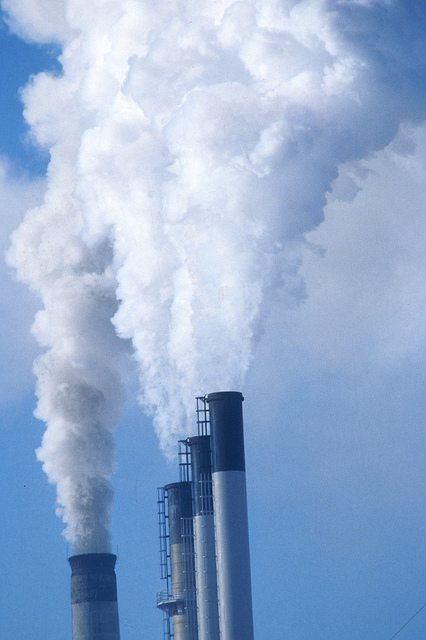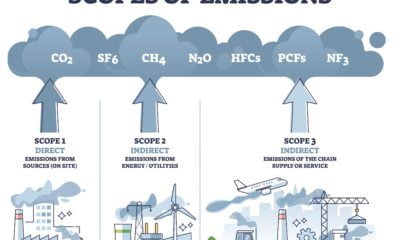

Environment
Cutting carbon emissions could boost public health – US study
Reducing the carbon emissions generated by power plants in an effort to curb climate change would also reduce other atmospheric pollutants that cause premature death, heart attacks and asthma in humans, according to a pioneering new study.
In a review of the possible benefits of three different policy options for forthcoming US Environmental Protection Agency standards that would limit power plant emissions, researchers from Syracuse University and Harvard found that such measures could have welcome side effects.
Of the three scenarios analysed, the most stringent measures demand that carbon emissions from the power sector are cut by 35% from 2005 levels by 2020. The scientists found that this would also reduce sulphur dioxide and mercury emissions by 27% and nitrogen oxide emissions by 22% by 2020.
“We know that these other pollutants contribute to increased risk of premature death and heart attacks, as well as increased incidence and severity of asthma and other health effects”, explained lead author Charles Driscoll of Syracuse University.
“They also contribute to acid rain, ozone damage to trees and crops, and the accumulation of toxic mercury in fish.
“This new analysis shows that there is a real opportunity to help reverse decades of environmental damage from power plant emissions and to improve human health.”
Driscoll and his colleagues have quantified their findings in detailed maps that set out the localised benefits of emission reductions. They show that each US state would experience some benefits.
“This is an opportunity to both mitigate climate change and protect public health”, added Jonathan Buonocore of Harvard University.
Earlier this month, a damning report from the World Health Organisation (WHO) warned that air quality was continuing to deteriorate in many of the world’s biggest cities.
It revealed that only 12% of people living in the 1,600 cities assessed breath air that complies with WHO air quality guidelines. Around half of the urban population that was analysed are exposed to air pollution that is at least 2.5 times higher than the levels WHO recommends.
In April, Public Health England (PHE) said that air pollution was “the biggest public health risk after smoking”, claiming it contributed to around 29,000 deaths in the UK each year.
Photo: Wisconsin Department of Natural Resources
Further reading:
US carbon emissions fall 3.4% in 2012
Study: reducing New York City pollution would make kids smarter and richer
Protesters rally in Washington to urge US climate action
Urban air quality ‘deteriorating’ – with pollution in nine UK cities above safe levels
MPs launch inquiry into air quality improvement


 Environment12 months ago
Environment12 months agoAre Polymer Banknotes: an Eco-Friendly Trend or a Groundswell?

 Features11 months ago
Features11 months agoEco-Friendly Cryptocurrencies: Sustainable Investment Choices

 Energy11 months ago
Energy11 months agoThe Growing Role of Solar Panels in Ireland’s Energy Future

 Energy12 months ago
Energy12 months agoHow Renewable Energy Can Help Combat Climate Change, According to Indra Energy




























